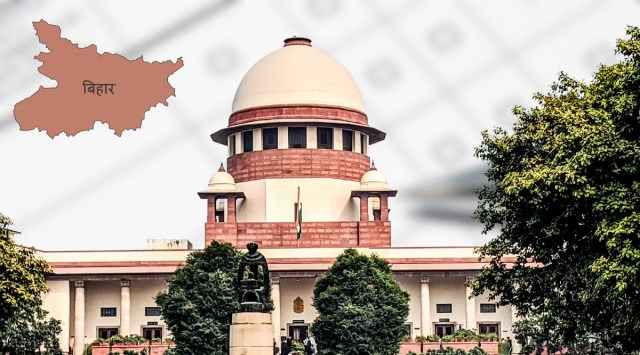Neutral live updates on Supreme Court hearing of Bihar SIR case, clarifying citizens’ burden of proof amid Aadhaar, Form 7 concerns. Bihar SIR Case SC Hearing | The Legal Observer
A real‑time account of today’s Supreme Court hearing on Bihar’s Special Intensive Revision (SIR), with focus on Sibal’s submissions, Form 7 issues, Aadhaar concerns, and the civic stakes for voters.
Sibal’s Submission
Senior advocate Kapil Sibal, appearing before the Supreme Court, critiqued the SIR process’ strict documentation requirements. He asserted that “none of this done”—clarity remains lacking on why commonly held documents like Aadhaar, voter ID, or ration card are not being accepted. Citing Rule 13, which mandates objections via Form 7, Sibal pointed out pitfalls: “Please see Form 7 and you’ll see where the problem is.” His argument echoed concerns that the burden of proof is being shifted onto voters—particularly migrant and marginalized groups—contrary to democratic norms. This aligns with the principle that “the burden of proof should not shift onto voters,” a key element in preserving fair and accessible electoral participation.
Court’s Response
The Supreme Court bench, led by Justices Sudhanshu Dhulia and Joymalya Bagchi, listened attentively to the submissions. While no immediate directions were issued on Sibal’s arguments, the court has previously expressed hesitation about unjust exclusions. Given earlier advisories—like on July 10, when the Court suggested the Election Commission (EC) consider accepting Aadhaar, voter ID, and ration cards—the bench’s receptiveness now sets the stage for continuous scrutiny. The Times of India
ECI’s Reply
In parallel, the Election Commission of India (ECI) assured the Court that no voter’s name will be deleted from Bihar’s draft electoral roll without giving them prior notice, a hearing opportunity, and a reasoned order—an affirmation of procedural fairness. The Times of India
However, opposition parties and civic groups remain unconvinced. The INDIA bloc protested under the banner of combating “vote theft”; prominent leaders like Rahul Gandhi and Priyanka Gandhi Vadra were briefly detained while protesting near Parliament. The Economic Times Meanwhile, the CPI(ML) has labeled the SIR “the biggest attack on the Constitution,” alleging removal of 66 lakh electors—particularly migrants and marginalized voters. The Times of India+1
Next Steps
- The Supreme Court is expected to deliberate further, possibly directing the EC to revisit its documentation policy.
- Future hearings may offer clarity on whether widely held IDs like Aadhaar or ration cards will be accepted—critical for ensuring voter inclusion.
- Meanwhile, political resistance continues, with demands for transparency, reinstatement of voters removed without due process, and clearer guidelines for Form 7 objections.
Broader Civic Implications
This judicial process holds major implications for India’s democratic ethos. The exclusion of Aadhaar, voter ID, and ration cards from valid documentation requirements risks widespread disenfranchisement—especially among migrant workers and rural populations. As critics argue, this undermines the public interest, echoing Bill Kovach and Tom Rosenstiel’s principle that journalism—and by extension, civic institutions—must serve democracy with accuracy, transparency, and fairness.
At a time when voters face existential hurdles to retain their electoral voice, the SC’s handling of the SIR case may set a precedent for safeguarding democratic rights across India.




